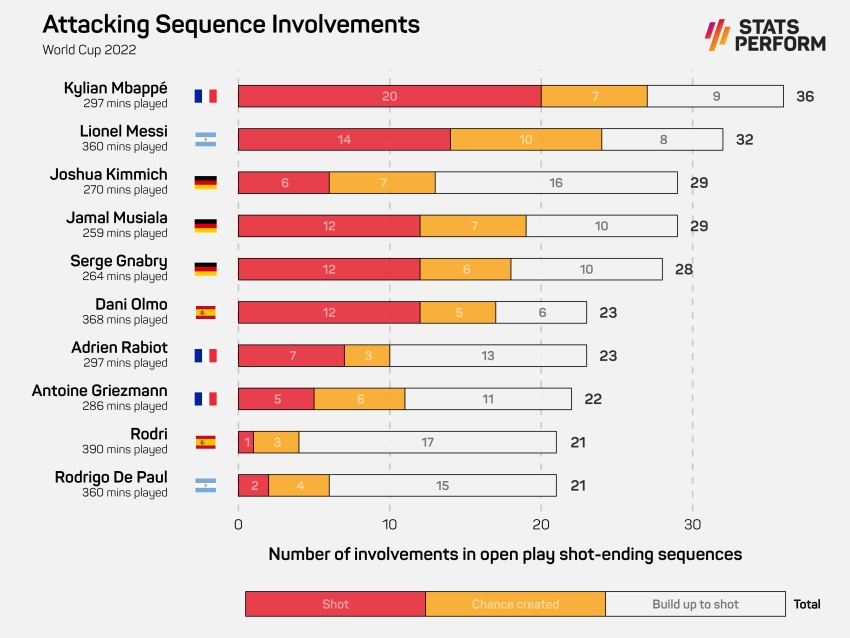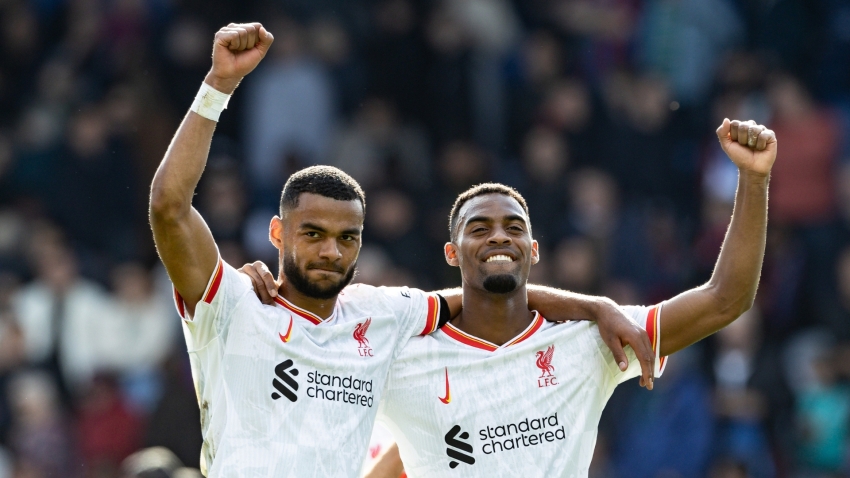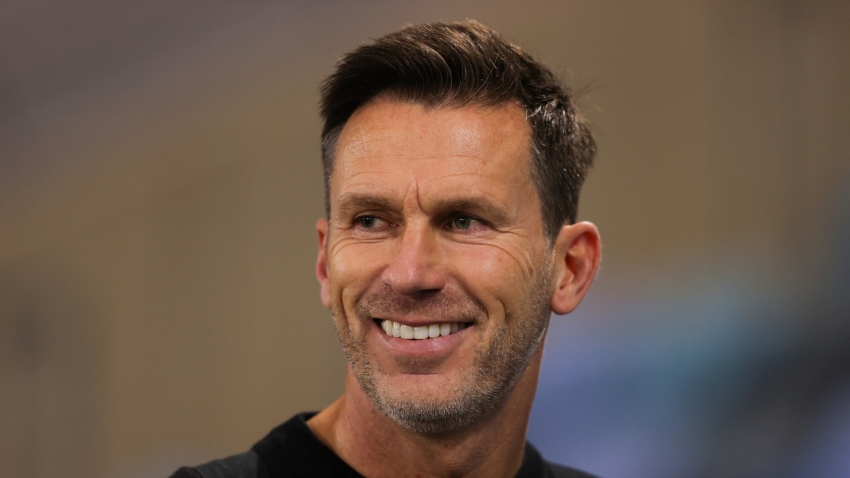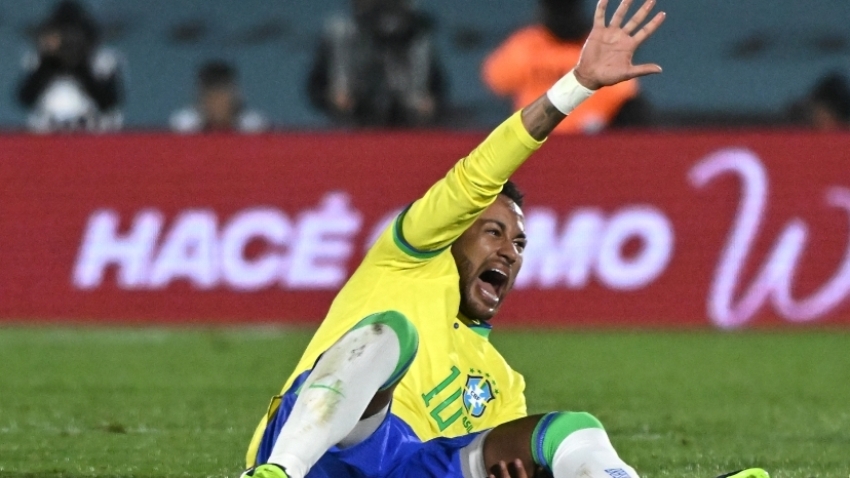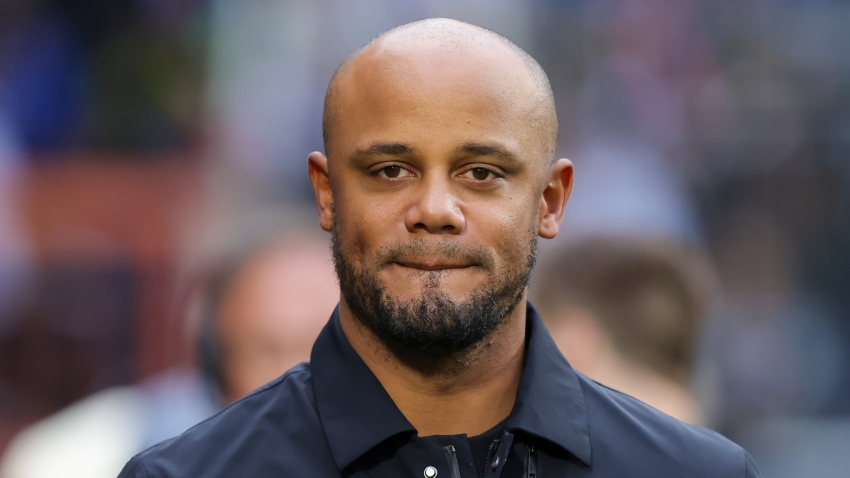Liverpool’s Cody Gakpo expressed his pride in seeing compatriot Ryan Gravenberch show off his qualities ‘to the whole world’ after a fine start to the Premier League season.
Though the Netherlands pair did not become teammates at Liverpool until late summer of 2023, Gakpo knew well Gravenberch’s talents from their respective Eredivisie spells with PSV Eindhoven and Ajax.
Now in his second season at Anfield, Gravenberch has drawn widespread plaudits for his form in a new deeper-lying midfield role under new head coach Arne Slot, having largely been used as a substitute under Jurgen Klopp.
Gravenberch is the only midfielder in Europe's big-five leagues to both make 30+ tackles (30) and 30+ interceptions (33) in all competitions this season, and Gakpo insisted that his Netherlands team-mate can continue to go from strength to strength, starting against Southampton this Sunday.
“We [the Dutchmen at Liverpool] knew Ryan already from the Eredivisie when he played at Ajax, and I think everybody knew already that he is this good,” Gakpo recently told Men in Blazers.
“After that, he made a move to Bayern Munich, and maybe he didn’t play that much over there, but still everybody in Holland knew how good he could be when he was playing.
“And I think maybe the manager [Slot] also knew this. At the beginning of the season, he put him in a slightly different position, but he gave him the confidence to play there.
“Ryan showed his quality in that position, grabbed his chance as well and turned out to be a good match. He is playing outstandingly for us this season.
“I’m very happy that we can see Ryan, as we Dutchmen already knew, but now he can show it to the whole world. I’m very proud of him.”
Southampton, meanwhile, welcome the Reds to St. Mary’s on the back of a 2-0 defeat to Wolves ahead of the international break, leaving them bottom of the table after 11 games of the season.
The Saints are the lowest scorers in the Premier League this season (seven), while only Crystal Palace (5.1%) have a lower shot conversion rate than Russell Martin’s side (6.2%). Just 30.1% of Southampton’s shots have been on target this term (34/113), a league-low ratio.
However, the Southampton head coach is relishing the opportunity of facing Liverpool, with his players performing well against the likes of Arsenal and Manchester City already this term.
"I'm really excited about Sunday. We're playing the best team in the country at the moment, on their current form and what they have been doing with their manager, built on an incredible foundation from the previous manager, so I'm really looking forward to it,” Martin said.
"I think we showed the guys the Premier League table last season and how much it changed by the end and by the end of December. But it's honestly such an exciting month.
"People talk about the difficulty of the game and every competition we face in the next four or five games, but it's what we all worked so hard for. We should be excited about the challenge.
“I think teams have shown in the last few weeks that you can pick up big results against big teams, good opposition, and we are going to have to. Our level of performance against teams at the top end of the table has been good on the whole."
PLAYERS TO WATCH
Southampton – Mateus Fernandes
Fernandes has become a mainstay in the Southampton team, starting the last eight Premier League games in a row, and has been one of Martin’s standout performers in a lacklustre start to the campaign.
In the Saints’ 2-0 defeat to Wolves last time out, the Portuguese contributed a team-high expected goals (xG) tally of 0.22 from his three shots, while only Yukinari Sugawara (10) and Flynn Downes (12) have created more chances in the top-flight than Fernandes (eight) this season.
Liverpool – Mohamed Salah
Salah has both scored and assisted in the same match 35 times in the Premier League (including four already this term), just one shy of Wayne Rooney’s record of 36 games with both a goal and an assist in the competition. The Egyptian has been directly involved in 11 goals (seven goals, four assists) in 11 Premier League appearances against Southampton.
He has also been directly involved in 67% of Liverpool’s Premier League goals this season (14/21 – eight goals, six assists), the highest ratio by a player for any side in the division in 2024-25. Indeed, only Matt Le Tissier for Southampton in 1993-94 (69% - 34/49) has scored or assisted a higher proportion of a side’s goals in a single season in the competition.
MATCH PREDICTION: LIVERPOOL WIN
Liverpool have won nine of their 11 Premier League games under new head coach Slot (D1 L1). A win over Southampton will see the Dutchman become the joint-fastest manager to reach 10 wins from the start of a Premier League career (12 games), alongside Guus Hiddink in May 2009 and Carlo Ancelotti in November 2009 (both with Chelsea).
The Reds’ last Premier League game against the Saints was a 4-4 away draw in May 2023 – they conceded as many goals in that game as they had in their previous six visits to St Mary’s combined.
Southampton have won just one of their last 14 Premier League games against Liverpool (D3 L10), a 1-0 home victory in January 2021.
This will also be the first Premier League match between the side starting the day bottom of the table and the side starting the day top since April 2023, and Southampton’s 3-3 draw away to Arsenal. The league leaders are unbeaten in 14 such matches (W12 D2) since Wolves won 2-1 against Manchester United in February 2011.
However, Southampton have only lost one of their last eight Premier League home games against sides starting the day at the summit (W2 D5) and are unbeaten in their last four (W2 D2 – including a 1-0 win over Liverpool in January 2021) since a 0-1 defeat to Man City in May 2018.
But Martin’s side have lost nine of their 11 Premier League games this season (W1 D1). Only seven sides in English top-flight history have reached 10 defeats in 12 or fewer matches from the start of a campaign, with all seven going on to be relegated.
OPTA WIN PROBABILITY
Southampton – 9.7%
Draw – 12.6%
Liverpool – 77.7%
























